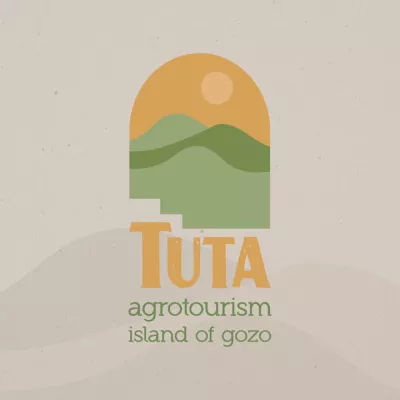General information
RDP Priority
- P6. Social inclusion and local development
RDP Focus Area
- 6A: Diversification & job creation
RDP Measure
- M06: Farm & business development
Beneficiary type
- Partnership
Summary
Two young dairy farmers on Gozo Island used CAP support to establish a ten-room agro-tourism facility with accompanying amenities. Their project aimed to promote agricultural diversification and to develop agritourism in the Maltese Islands. The services and experiences provided to visitors at the farm actively promote and enhance local traditions, gastronomy and environmental sustainability. Additionally, the facility promotes inclusivity, ensuring that its offerings benefit a diverse range of individuals or groups in the community.
Results
- The agritourism facility offers services such as animal-assisted therapy, walking tours, educational talks related to farming and agriculture, and culinary experiences.
- During the first year of operation, the facility served some 4 200 visitors over 210 days of activity.
- The project created two full-time jobs.

Promoter
Jochen Tabone & Stephen Tabone
Funding
Total budget: 442 584 (EUR)
EAFRD: 150 000 (EUR)
National/Regional: 50 000 (EUR)
Private/own: 242 584 (EUR)
Ressourcen
Documents
Links
Context
Two young brothers on Gozo Island, Jochen and Stephen Tabone, used multiple EAFRD grants from measures M6 – Farm & business development, M4 – Investments in physical assets and M19 – LEADER/CLLD to help them establish their dairy farm and to create an aquaponic system to grow their own livestock feed. In order to diversify their income, they decided to tap into the tourism industry. Tourism is an important sector for the Maltese islands, but the more niche market of rural/agritourism remains relatively underdeveloped. This offers rural development opportunities for Maltese entrepreneurs.
Objectives
The project aims were to:
- Generate additional income for the farmers through diversification into agritourism.
- Enhance the tourism appeal of their rural area.
- Preserve rural heritage and traditions.
- Provide job opportunities for farm household members and local inhabitants.
- Improve the long-term sustainability of the applicants’ farm-holding.
- Revitalise the local economy by strengthening links between farmers and the local community.
Activities
Project activities included:
- establishing a ten-room accommodation and services estate for agro-tourism in the limits of Kercem, Gozo, which includes: a reception area, pool and sanitary facilities, parking area with landscaping, water reservoir and water treatment plant room, as well as a storage area for antique farming equipment/machinery to serve as a showcase and small attraction.
- developing a website for the promotion of the agritourism offer and for handling bookings.
Main results
- Created a new diversified agricultural enterprise.
- The project created sustainable jobs - two full-time employees are currently working on the premises, and in the first year of operations they served some 4 200 visitors over 210 days of activity.
- The agritourism facility offers a number of niche services related to agriculture, such as animal-assisted therapy, walking tours, educational talks related to farming and agriculture, culinary experiences, and hands-on farming for visitors.
- The accommodation facilities also incorporate sustainable practices, such as efficient energy use, waste reduction and water resource management.
- The project helped the beneficiaries to collaborate with other farmers and local stakeholders to provide visitors with a range of experiences and points of interest.
Key lessons
- This project cannot be seen in isolation from the other RDP-funded projects that these beneficiaries have implemented, which include the original set-up of their cattle farm, investment in an aquaponic system to grow their own livestock feed, and the construction of a kitchen facility to promote local ingredients, gastronomy and farming.
- EU projects involve bureaucracy designed to protect and optimise public funds. Understanding these red-tape controls and rules properly will help project applications attract funding faster.
- Thorough project scoping, risk analysis and financial planning help enable project ideas to take shape and ensure a strong funding application for support.
- Moreover, gathering a diverse and knowledgeable project team from the outset is key to ensuring that the project is implemented according to the programme guidelines and the signed grant agreement.
- Project monitoring, both during and after implementation, is an especially important area of work that requires dedicated human resources. This ensures that issues are spotted quickly and that mitigating actions can be taken.
